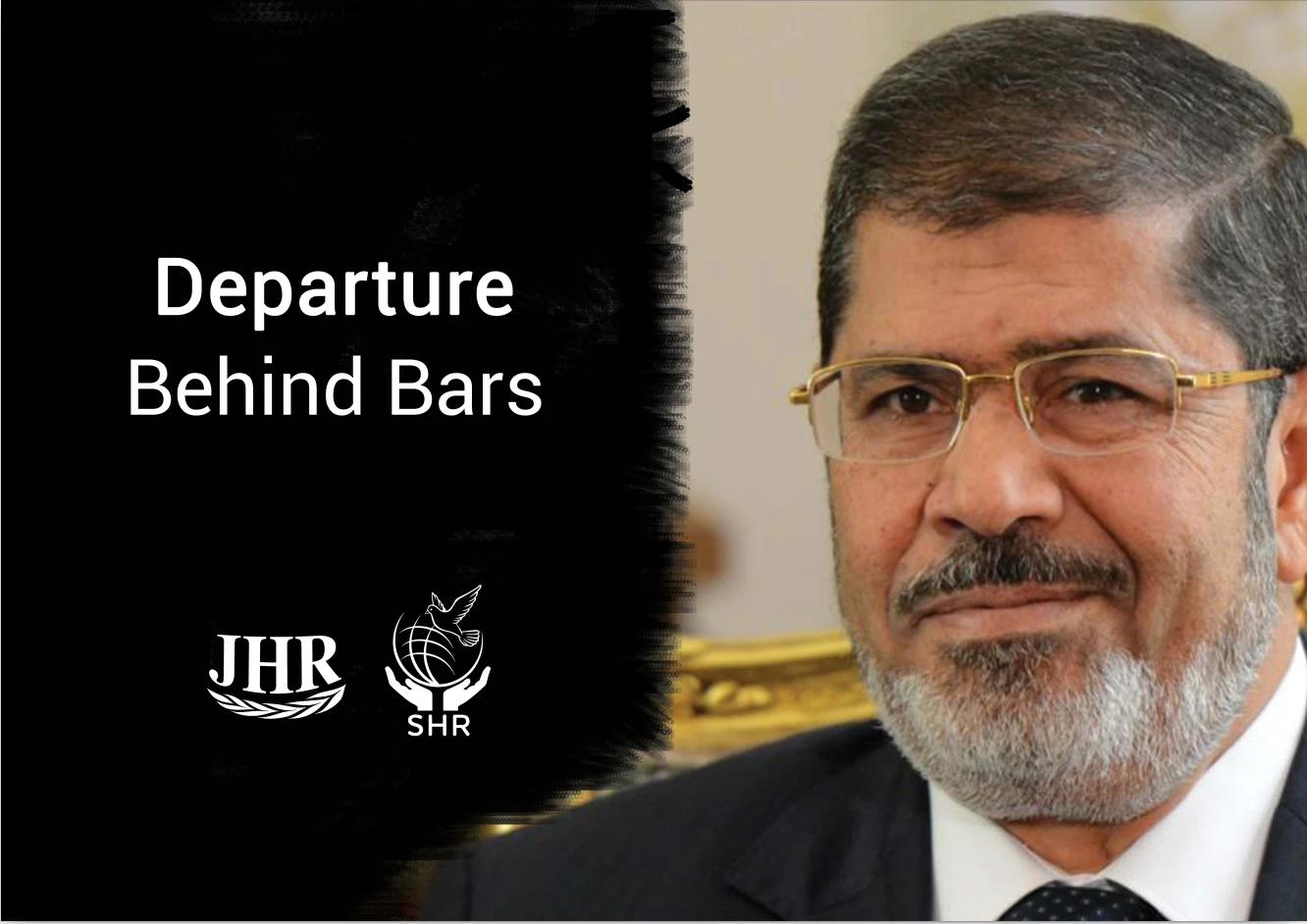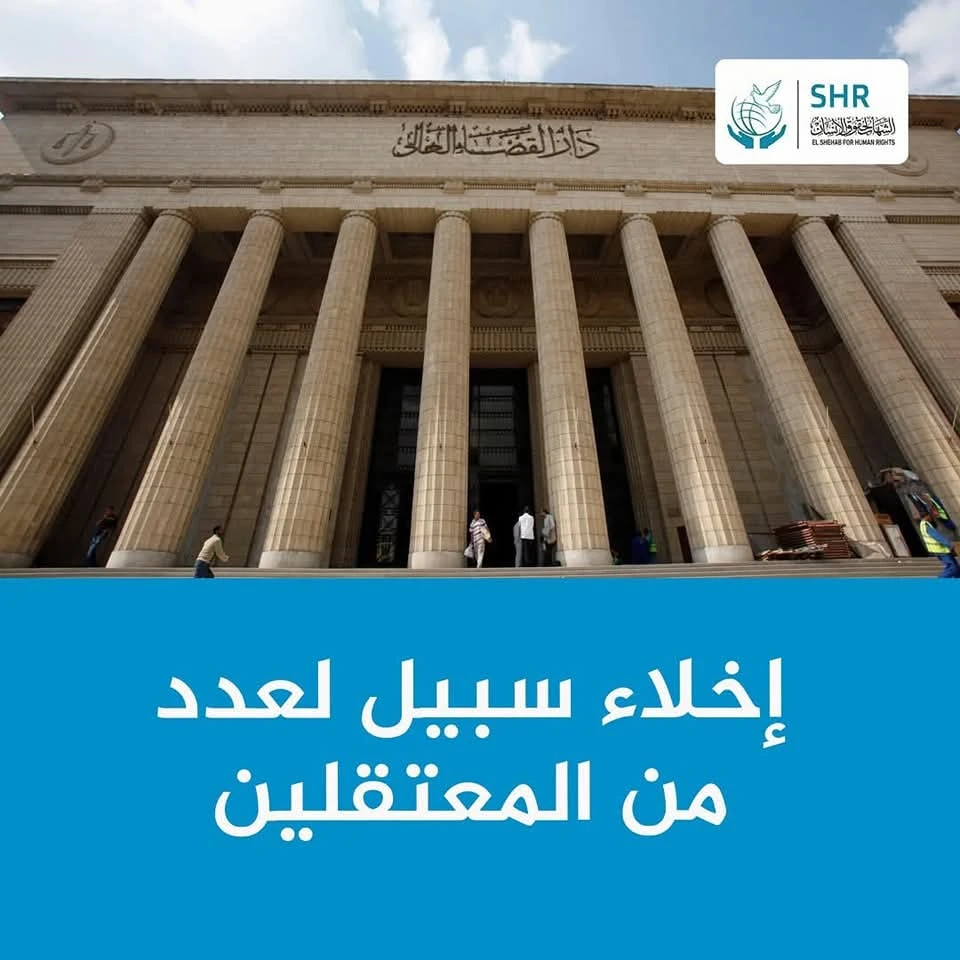On the Sixth Anniversary of Dr. Mohamed Morsi’s Death: El-Shehab Center Re-Publishes Report “Departure Behind Bars”
On June 17, 2019, at exactly 6:00 PM Cairo local time, Egyptian state television announced the death of Dr. Mohamed Morsi, Egypt’s first democratically elected civilian president following the 2011 January Revolution.
Dr. Morsi collapsed inside a soundproof glass cage—sometimes even obscuring visibility—after the court session was adjourned by Judge Mohamed Shereen Fahmy, head of the judicial panel overseeing two high-profile cases: the “Wadi Al-Natroun Prison Break” and “Espionage with Hamas”.
According to testimonies from family members and lawyers who were present, Dr. Morsi showed no visible signs of illness during the session, which took place at the Police Academy in the Tora Prison Complex under the supervision of the Egyptian Ministry of Interior. Witnesses say he fainted during the hearing, after which he was left for nearly 20 minutes without medical attention before being transferred to a hospital—later revealed to be Tora Prison Hospital.
Many question the official narrative released by the Egyptian authorities, which claimed that the death was due to natural causes. At the age of 68, Dr. Morsi had spent six years in solitary confinement, during which he was denied family visits, except for only three times. Like many political detainees in Egypt’s prisons, he suffered from severe medical negligence. Human rights organizations report that over 800 detainees have died in custody due to systematic medical neglect, the majority of whom were political prisoners.
To mark the sixth anniversary of his passing, El-Shehab Center for Human Rights has re-published its report titled: “Departure Behind Bars”, highlighting the human rights violations and circumstances surrounding Dr. Morsi’s death.







